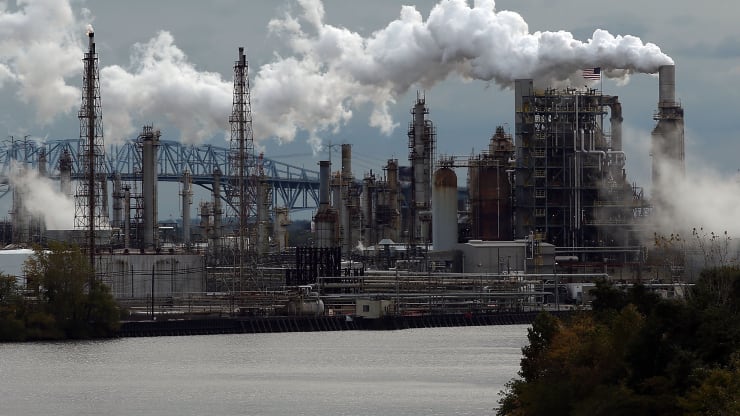Oil prices fell more than 2% on Monday, dragged down by concern over demand in China after the coronavirus breakout, though the possibility of deeper crude output cuts by OPEC and its allies offered some price support.

U.S. West Texas Intermediate fell $1.42, or 2.8%, to trade at $50.13, its lowest level since Jan. 2019. Earlier in the session WTI slid more than 3%, trading as low as $49.92 per barrel.
On the first day of trade in China after the New Year holiday, investors erased $393 billion from China’s benchmark equities index, sold the yuan and dumped commodities as fears about the virus dominated markets.
Iranian Oil Minister Bijan Zanganeh said the spread of the coronavirus had hit oil demand and called for an effort to stabilise oil prices.
“The oil market is under pressure and prices have dropped to under $60 a barrel and efforts must be made to balance it,” he said.
Zanganeh also said that Iran would agree to the bringing forward of OPEC’s next meeting meeting if the rest of the group agreed to production cuts.
The OPEC+ group is also considering holding a ministerial meeting over Feb. 14-15, one of the OPEC sources said, ahead of a previously scheduled meeting in March. “The market needs assurances that the supply/demand equation remains in balance for prices to hit a floor. This suggests a commitment from OPEC not just to extend oil supply cuts, but even implement deeper ones beyond March,” said FXTM analyst Hussein Sayed.
As the coronavirus outbreak hit fuel demand in China, Sinopec Corp, Asia’s largest refiner, told its facilities to cut throughput this month by about 600,000 bpd.
Independent refineries in Shandong province, which collectively import about a fifth of China’s crude, cut output by 30% to 50% in a little more than a week, executives and analysts said.
“Clearly travel restrictions and the extended shutdown of large parts of the Chinese industrial sector have weighed on oil demand and this is reflected in the weakness that we are seeing in the ICE Brent time spreads,” said ING analyst Warren Patterson.
The premium of the first-month Brent contract to the second-month contract narrowed to 9 cents a barrel on Monday, from 70 cents a month ago, indicating that traders are not concerned about supply tightness because of the demand impact of the coronavirus.
[contextly_sidebar id=”JxK6prOkrNRCqSYBNyxksM7HztsCFSaz”]







